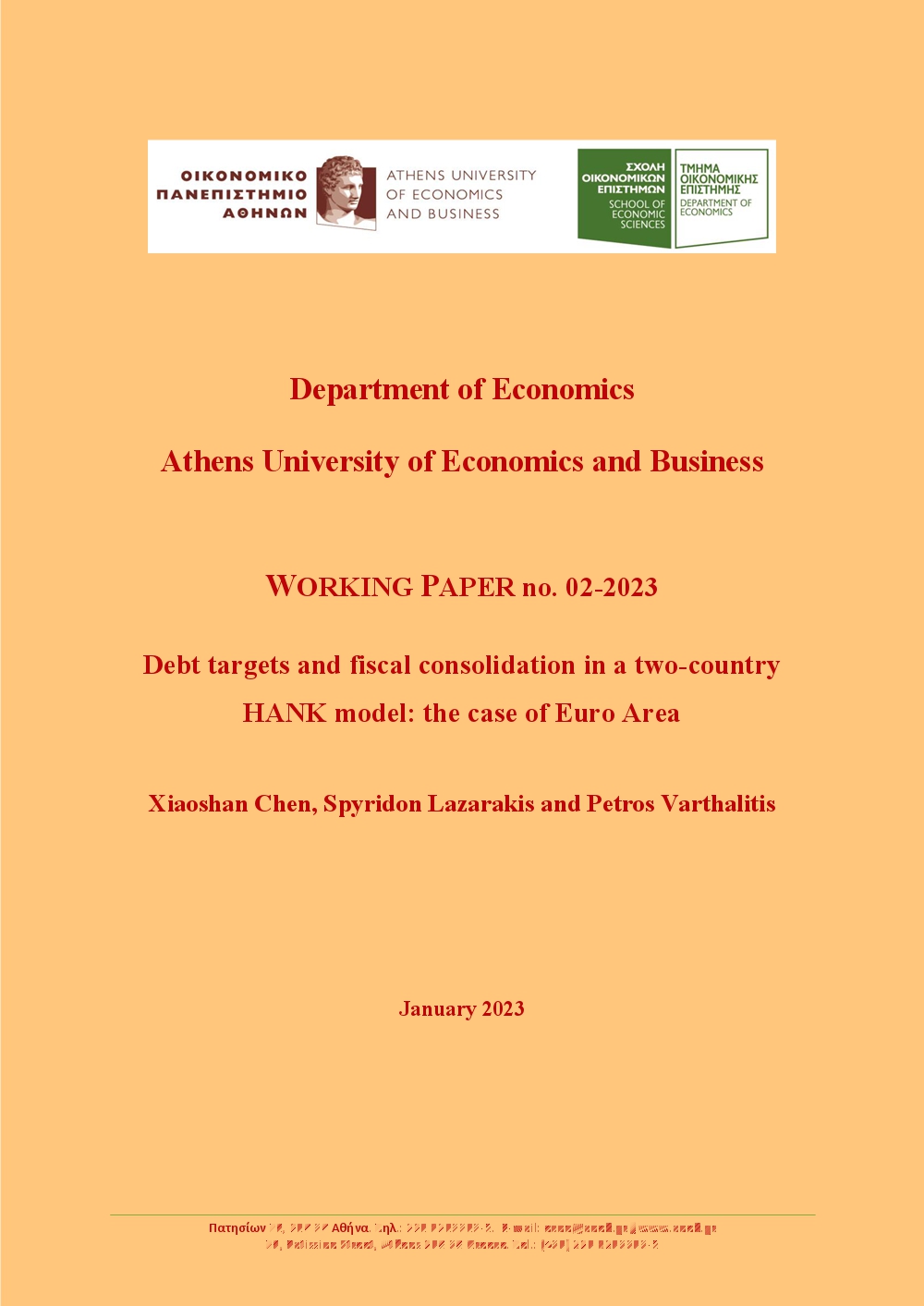Ανάρτηση Ερευνητικού Δοκιμίου no 02/23

Ερευνητικό Δοκίμιο no 02/23 με τίτλο "Debt Targets and Fiscal Consolidation in a Two-Country HANK Model: the Case of Euro Area" των Xiaoshan Chen, Spyridon Lazarakis and Petros Varthalitis
Περίληψη
This paper builds a two-country Heterogenous Agents New Keynesian (HANK) model for the Euro Area (EA). The two countries differ in the degree of public indebtedness, i.e., the Periphery has a relatively higher public debt-output ratio vis-à-vis the Core. The model captures some key features of the EA's cross- and within-country heterogeneity over the 2010-2020 period. We use this model as a vehicle to study fiscal consolidation policy and reforms of EA fiscal targets. We find that public debt asymmetry can explain qualitatively, and to some extent quantitatively, EA macroeconomic imbalances and within-country dis- parities. We find that a fiscal consolidation scenario that mimics the current EA institutional arrangements, i.e., the Maastricht Treaty and the Stability Growth Pact Agreement, would result in significant welfare losses, especially for the wealth-poor and wealth-median in the Periphery; the welfare losses amount to 2.42% and 2.21% of their lifetime consumption in the status quo stationary equilibrium, respectively. A revision of EA fiscal targets closer to their current values, e.g., 100% for the Periphery and 70% for the Core, does not generate a conflict of interest between wealth-rich and -poor households across and within countries. Thus, our analysis provides a strong rationale for reforming EA debt targets. Such reform could make more affordable fiscal consolidation for the large proportion of households in the Periphery, e.g., it reduces the welfare losses from 2.42% to 1.24% for the wealth-poor households in the Periphery. Surprisingly, a Core expansion (i.e., a higher public debt-output ratio) while the Periphery consolidates would not benefit a large proportion of households in the Periphery, especially those with relatively fewer asset holdings in the status quo stationary equilib-rium. Such a reform generates a conflict of interest between the Core's households and the wealth-poor/median households in the Periphery. Furthermore, a hawkish monetary policy reaction against inflation during fiscal consolidation generates a conflict of interest between the wealth-rich in the union and the wealth-poor households in the Periphery. Such policy disproportionately benefits households who hold more assets in the status quo equilibrium. Regarding fiscal policy mix, fiscal consolidation via spending cuts instead of tax hikes dis- proportionally harms the households with relatively higher asset holdings in the status quo stationary equilibrium, but it is less harmful for the wealth-poor households in the Periphery.
Η Xiaoshan Chen είναι Associate Professor in Economics στο Durham University Business School, ο Σπυρίδων Λαζαράκης είναι Lecturer (Assistant Professor) στο Lancaster University (Management School και ο Πέτρος Βαρθαλίτης είναι Επίκουρος Καθηγητής στο τμήμα Οικονομικής Επιστήμης του Οικονομικού Πανεπιστημίου Αθηνών.





 Πατησίων 76
Πατησίων 76 2108203 303
2108203 303
